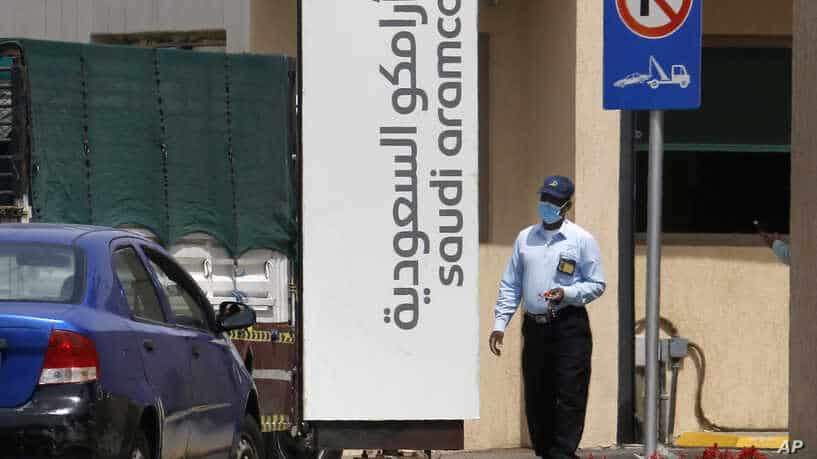Saudi Arabia and Russia Signal Readiness to Cooperate on Oil

Saudi Arabia and Russia signaled on Thursday they were ready to cooperate to help stabilize the oil market after calls with U.S. President Donald Trump to discuss the slump in prices triggered by the end of a deal to curb output and a collapse in demand.
After the deal collapsed, Russia and Saudi Arabia both said they were ready to raise production but Russian Energy Minister Alexander Novak told Reuters on Thursday it had no plans to crank up its crude output.
A senior Gulf source familiar with Saudi thinking, meanwhile, told Reuters on Thursday that Saudi Arabia supported cooperation between oil producers to stabilize the market but it was Russia's opposition to a proposal last month to deepen oil supply cuts that caused the market turmoil.
Oil prices have halved to under $26 a barrel since Saudi Arabia, de facto leader of OPEC, and other producers led by Russia — collectively known as OPEC+ — failed to agree a joint supply response to the slump in fuel demand caused by the coronavirus pandemic.
U.S. President Donald Trump said on Wednesday he had talked with Saudi and Russian leaders and believed the two countries would make a deal to end their price war within a few days, lowering output and bringing prices back up.
Oil prices jumped 10% on Thursday after Trump's comments.
Stabilizing the oil market through output cuts is likely to be tough in the current environment because oil demand has fallen by almost a third, or at least 20 million barrels per day, meaning significant reductions would be required.
Russia and Saudi Arabia have blamed each other for the price collapse. Riyadh wanted to deepen the oil cuts because of the fallout from coronavirus but Moscow refused to join new reductions, preferring to extend the existing agreement.
In response, Saudi Arabia slashed its crude export prices, said it would raise production to maximum capacity and has tried to sell cheap oil to refiners that buy Russian crude. Saudi supply hit a record above 12 million barrels a day on Wednesday.
'Both went crazy'
While there is little evidence yet of Russia and Saudi Arabia bridging their differences, signs were growing this week that the world's two biggest oil exporters were preparing to address the situation.
Russian President Vladimir Putin called on Wednesday for global oil producers and consumers to address "challenging" oil markets and the
senior Gulf source said Saudi Arabia wanted producers to work together.
"Saudi Arabia has always welcomed and supported cooperation among oil producers in their efforts to stabilize the oil market during the current crisis, based on the principles of fairness and equity," the Gulf source told Reuters.
The U.S. Energy Department on Wednesday urged Saudi Arabia and Russia to calm oil markets after the kingdom's crude supply hit a record even as demand falters because of coronavirus.
Novak told Reuters that Russia had not yet discussed the oil market situation with Saudi Arabia but did not rule this out.
The flood of Saudi oil comes amid an unprecedented fall in demand as billions of people stop using cars and taking flights because they are under lockdowns to prevent coronavirus from spreading.
Already, tens of millions of barrels of oil have gushed into storage because refiners do not need to buy them at the moment.
Putin and Trump spoke on Monday. Trump said then that Saudi Arabia and Russia "both went crazy" with their production after the supply deal failed. Low oil prices are threatening to put U.S. shale oil producers out of business as they cannot compete with cheaper Saudi and Russian oil.
"I never thought I'd be saying that maybe we have to have an oil [price] increase, because we do," Trump said.
Photo: AP
Link: https://www.voanews.com/economy-business/saudi-arabia-and-russia-signal-readiness-cooperate-oil




